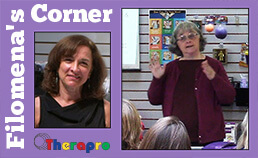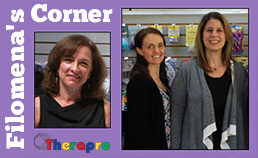
The 2019 Therapro Saturday Seminar Series was launched by school-based physical therapists, Dr. Jennifer Colebourn, MSPT, DPT and Dr. Julie Goff, MSPT, DPT with their presentation: The Role of Motor Interventions in Autism Spectrum Disorder.
Jenn and Julie met at Northeastern University where they were pursuing their doctoral degrees. Jenn’s research focuses on motor interventions for Autism Spectrum Disorders. Her most recent work has been published in the journal, Pediatric Physical Therapy: A. Colebourn, Jennifer & C. Golub-Victor, Ann & Paez, Arsenio. (2017). Developing Overhand Throwing Skills For a Child With Autism: A Collaborative Interdisciplinary Approach In School-Based Therapy. Pediatric Physical Therapy. 29. 262-269. Julie’s research on improving gross motor skills in children with Autism Spectrum Disorders received Northeastern’s RISE award in 2016. In their practice, both therapists focus on a collaborative team approach to improving motor performance in children with ASD.
Attendees were given a comprehensive review of Autism Spectrum Disorder, including the DSM-V (2013) diagnosis as a Neurodevelopmental disorder. We learned that ASD is no longer classified on a “spectrum” but with levels of severity. The term “Asperger” is no longer used, but individuals with the characteristics formerly attributed to Asperger are now considered to be “high functioning Autism.” An alarming statistic they revealed was that currently 1.5 billion children in the US have an autism diagnosis. Jenn and Julie cautioned that diagnosing ASD is complex and in the past 5 years, neuroimaging has provided startling information about the difference in the brain of the child with ASD from a typical child, i.e. “neuro over connectivity” that impacts function.
Jenn and Julie addressed the fact that motor function of children with ASD is affected, usually with simple motor tasks being intact, but with complex tasks and motor planning being impaired. Motor difficulties are now considered a “Core Deficit.” Screening for motor deficits is important for all children with the ASD diagnosis. The PT’s role includes recognizing if a motor impairment interferes with function. Julie and Jenn cited a number of studies that examined how core deficits affect a child’s participation in physical activity across many dimensions. What we might see is a child who prefers simple, sedentary activities and who doesn’t participate in complex social activities such as organized sports. In summary, motor deficits affect a child’s ability to participate in play.
When providing treatment for the child with ASD, Julie and Jenn advocate strongly for a team collaborative approach that includes the child’s family members. They noted that the ABA therapist would be a strong, valuable ally because they can provide behavioral support to motor intervention. They discussed ways to design the environment and treatment sessions in order to help ensure success and motor learning. A few examples they gave were: promote positive transitions, simplify choices, and have a predictable space and schedule. A few materials they recommended include: Body Awareness Fun Deck, Upper Body and Core Strength Fun Deck, Magicatch Set, Rainbow River Stones, Learn to Move, Move to Learn!, and ABC Yoga Cards for Kids.
We are grateful to Jenn and Julie for sharing their passion and expertise for improving motor performance of children who have an ASD diagnosis. With improved motor skills, it is likely that other areas of function will be affected in a positive way as well. With the high incidence of ASD worldwide, Autism will affect us all. The need for continued research is critical to help our understanding and ability to treat children with ASD effectively.
Here are just a few of the attendees’ positive reviews of this seminar:
“Incredibly informative and relevant! Felt so empowered from the seminar. Helped to give me better direction in my practice as well as increased confidence in my recommendations to families & school staff.” – Laine F., Physical Therapist
“The two presenters were so knowledgeable in their area – facts were most interesting.” – Rolene K., Teacher
“Great overview of school PT and best practice for collaboration with all members of the team.” – Micaela M., Physical Therapist
“Presenters were professional presenting evidence based practice to help improve functional skills for students with Autism.” – Alice T., Occupational Therapist
Thank you, Jenn and Julie!
Filomena Connor, MS, OTR/L
January 12, 2018

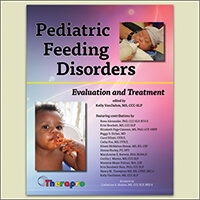
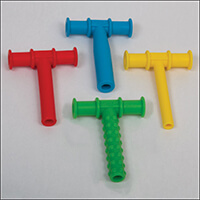
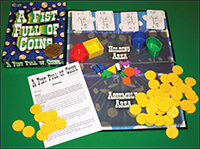
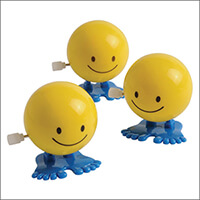
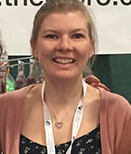 Allyson is an occupational therapist with a diverse background in both sensory integration and school based practice. She currently works in a school for children and young adults who have significant medical, mental health, and cognitive needs.
Allyson is an occupational therapist with a diverse background in both sensory integration and school based practice. She currently works in a school for children and young adults who have significant medical, mental health, and cognitive needs.